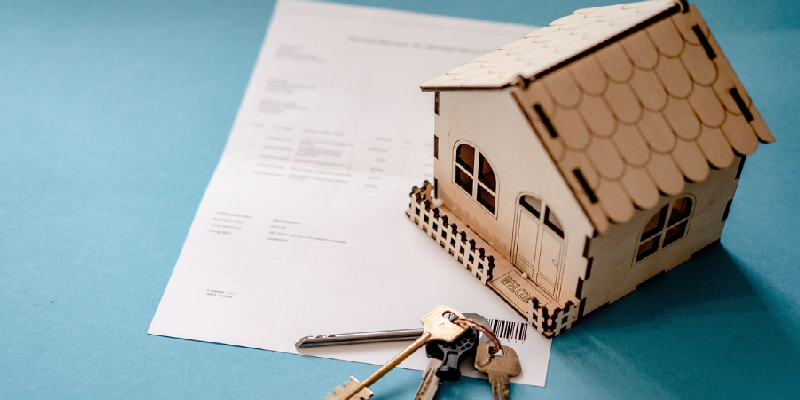Your home is more than just a physical structure; it’s a sanctuary, a place where you create cherished memories and find solace.To protect this haven, it’s essential to build a strong foundation through property and home insurance. These insurance policies provide a safeguard for your home, your possessions, and the peace of mind that comes with knowing that you’re prepared for unforeseen circumstances.
The Significance of Home Insurance
Home insurance, often referred to as homeowners insurance, serves as a financial safety net for homeowners.
1. Dwelling Coverage
Dwelling coverage, also known as structural coverage, protects the physical structure of your home. This includes the walls, roof, floors, ceilings, and built-in systems, such as electrical and plumbing. In the event of covered perils, such as fire, theft, or vandalism, dwelling coverage provides funds for repairs or rebuilding your home.
2. Personal Property Coverage
Personal property coverage insures your belongings inside your home. If these possessions are damaged or stolen due to covered perils, your home insurance policy helps replace or repair them.
Home insurance policies can also provide coverage for additional living expenses. If your home becomes uninhabitable due to a covered event, the policy can pay for temporary living expenses, such as hotel costs and food.
Why You Need Home Insurance
Home insurance is not only a wise financial decision but is often a requirement for homeowners. Here’s why you need it:
1. Protecting Your Investment
For most people, their home is one of the most significant financial investments they will make. Home insurance helps protect this investment by covering repair or replacement costs in case of damage or loss.
2. Liability Coverage
Home insurance also includes personal liability coverage. If someone is injured on your property and you are found liable, your policy can help cover legal expenses, medical bills, and potential settlements.
3. Mortgage requirements
If you have a mortgage, your lender will typically require you to have home insurance as a condition of the loan. Lenders want to ensure that their investment (your home) is protected.
4. Peace of mind
Having home insurance provides peace of mind. You can rest easy knowing that your home and belongings are covered in case of unexpected events, such as fires, storms, or theft.
Choosing the Right Coverage
When selecting a home insurance policy, it’s essential to assess your needs and tailor your coverage accordingly. Here are some key considerations to guide your decision:
1. Replacement Cost vs. Actual Cash Value
Dwelling and personal property coverage can be based on either replacement cost or actual cash value. Replacement cost coverage pays for the full cost of repairing or replacing items, without depreciation. Actual cash value coverage takes depreciation into account, so you may receive less in a claim. Replacement cost coverage typically offers more comprehensive protection but may come at a slightly higher premium.
2. Policy Limits
Ensure that the policy limits for dwelling and personal property coverage are sufficient to cover the value of your home and belongings. Inadequate coverage may leave you financially exposed in the event of a significant loss.
3. Deductible
Choosing a higher deductible can lower your premium but requires you to cover more of the initial costs in the event of a claim.
4. Additional Coverage
Consider additional coverage options, such as flood insurance, earthquake insurance, or special endorsements for valuable items like jewelry or art. These extra policies can provide protection in specific circumstances not covered by a standard home insurance policy.
5. Liability Coverage
Evaluate the level of personal liability coverage provided by the policy. Consider increasing this coverage if you have significant assets that need protection.
Property insurance for renters
If you rent your home rather than owning it, you still need insurance. However, you’ll need renter’s insurance rather than homeowner’s insurance. Renters insurance typically includes the following:
1. Personal Property Coverage
This coverage protects your personal belongings, including furniture, electronics, clothing, and more. In case of theft, fire, or other covered events, renters insurance helps replace or repair your belongings.
2. Liability Coverage
Just like homeowners insurance, renters insurance includes personal liability coverage. If you are found liable for someone’s injury while in your rented space, your policy can help cover legal expenses, medical bills, and settlements.
3. Additional Living Expenses
If your rental becomes uninhabitable due to a covered event, the policy can pay for temporary living expenses, such as hotel costs and food.
The Importance of Property Insurance
Property insurance is an essential component of protecting your home and possessions. It encompasses homeowners insurance and renters insurance, each tailored to different living situations.
Whether you own your home or rent it, property insurance is your financial safety net. It provides protection against unexpected events, helping you recover from damages, losses, or liability claims. Additionally, it offers peace of mind, knowing that your haven is safeguarded and that you are prepared for life’s uncertainties.
In conclusion, building a strong foundation for your peaceful haven involves choosing the right property insurance. Assess your needs, select the appropriate coverage, and understand the policy details. Property insurance is an investment in security and protection, providing a sense of peace and assurance that your home and belongings are safeguarded, allowing you to enjoy your haven to the fullest.
